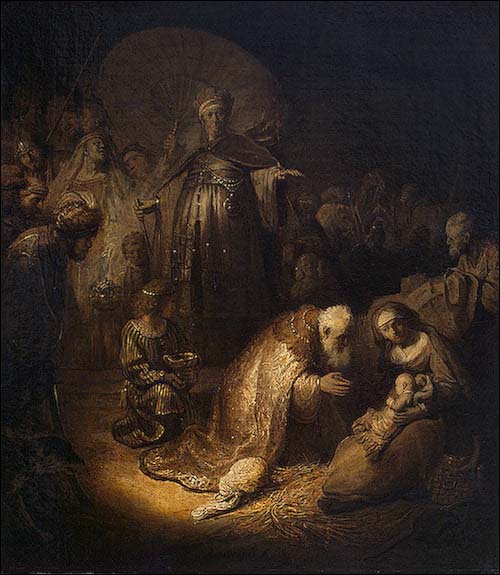
Quotes I liked from
The Meaning of the Pentateuch (Sailhamer, John.
The Meaning of the Pentateuch: Revelation, Composition, and Interpretation. Downers Grove, Ill.: IVP Academic, 2009.)
I will offer a different scenario of the identity of the authors of the OT. I will say that far from being the voice of Israel's religious authorities, such as the priesthood or monarchy, the voice that we hear most in the OT books is that of the prophets. (249)
What begins to emerge from these observations of narrative strategy is the notion that the biblical portrayal of the covenant at Sinai was not intended to be read in terms of a static unchangeable set of regulations. The author wants, instead, to show that Israel's relationship with God, established in no uncertain terms at Sinai, almost immediately began to undergo important changes, due principally to Israel's repeated failure to obey God. What began as a covenant between God and Israel, fashioned after that of the patriarchs (the Decalogue and the Covenant Code), had quickly become an increasingly more complex set of restrictions and laws primarily aimed at the priesthood (Priestly Code). (363)
Three major law collections-the Covenant Code, the Priestly Code, the Holiness Code-are now embedded in the whole of the Sinai narratives, and they are arranged around two similar narratives. Both narratives focus on the Lord's displeasure with Israel's fall into idolatry, the first involving idolatry in the form of calf worship, and the second that of goats. (365)
The people of Israel, led by the priests of the house of Aaron, quickly fell into idolatry in the incident of the golden calf. Even while the laws were being given to Moses on Mount Sinai, Aaron the priest was making the golden calf at the base of the mountain. Hence, the covenant was broken almost before it began (Ex 32). The golden calf marks a decisive moment in the course of the narrative. God, in his grace and compassion (Ex 33), did not cast off Israel. The covenant was renewed (Ex 34), but in its renewal, additional laws were given at the Sinai covenant. These are represented in the remainder of the code of priestly laws (Ex35-Lev 16). Although these laws appeared to keep the priests in check, it became apparent in the people's later sacrifices to goat idols (Lev 17:1-9) that the formulation of even laws was needed. To that end, God gave them the Holiness Code (Lev 17-25) and again renewed the covenant (Lev 26). With Deuteronomy comes the final addition of laws to the covenant, and eventually talk of a different covenant, not like that made at Sinai (Deut 28-30). (415)
The Pentateuch is arranged around certain themes ... pledge, faith, law. These three themes play off one another within the narratives and ultimately provide the central movement of the narratives ... The Pentateuch employs a poetic framework. I have urged in a number of places the “making” of the Pentateuch involved, among other things, the insertion of several key poems at the close of the central narratives of the book. These poems focus the reader of God's future work “in the last days” and his promise to send a king from the tribe of Judah. (466-7)
Here I want to make a few observations on three of the four major poems in the Pentateuch ( Gen 49; Num 24; Deut 33). These observations. I believe, move us closer to what the Pentateuch has to say about the biblical Jesus ...The first observation about these three poems is that each has an identical introduction linking it to events of “the last days.” ... A second observation about these three poems in the Pentateuch is their common reference point. Each one focuses the reader on a coming king who will bring peace and prosperity to the nations. (468)
In the earlier part of this book I argued that the central purpose of the Pentateuch is to teach the importance of a life of faith. As such, there is quite a lot of theological similarity between the Pentateuch and the NT books, especially those of the apostle Paul. Both stress the failure of the mosaic law and also God's offer of grace in the face of a heartfelt faith. (539)
To be sure, we believe that the events recounted in the Pentateuch are real, and the Bible has accurately depicted them. Our task, however, does not involve the reconstruction of those historical events apart from the biblical narratives. Our task is the exegesis of the biblical narratives in which those historical events are recounted. (540)
The aim of the Pentateuch is to be a textual expression of the prophetic hope grounded in the words of Moses. It is a hope that echoed throughout the OT (Tanak) and could be heard as far away as the NT and the church. At the center of that hope is a king whose reign is described in three large poems in the Pentateuch (Gen 49; Num 24; Deut 32/33). The Christian faith is in large measure an expression of the belief that Jesus is this king. (553)
The Pentateuch (OT) was written to Israel when they were under the Sinai covenant, but its purpose was to teach them the new covenant, not the old covenant. (556)
My general conclusion was that the message of the Pentateuch is not so much about the Mosaic law and the Sinai covenant as it is about the prophetic hope of a new covenant. At the center of that hope, and extending to the whole of the Pentateuch, is the role of the king from the house of Judah who will reign over Israel and the nations. (603)
 I'm two chapters into Godly Jealousy. (Thoennes, K. Erik. Godly Jealousy: a Theology of Intolerant Love. Scotland: Christian Focus, 2005. Print.) I'm thoroughly enjoying the book and learning much about the significance of God's jealousy to his character and his actions. I have also been a little surprised by the pervasiveness of this communicable attribute of God throughout the Bible. The book is clear, concise; just the way I like it.
I'm two chapters into Godly Jealousy. (Thoennes, K. Erik. Godly Jealousy: a Theology of Intolerant Love. Scotland: Christian Focus, 2005. Print.) I'm thoroughly enjoying the book and learning much about the significance of God's jealousy to his character and his actions. I have also been a little surprised by the pervasiveness of this communicable attribute of God throughout the Bible. The book is clear, concise; just the way I like it.

















